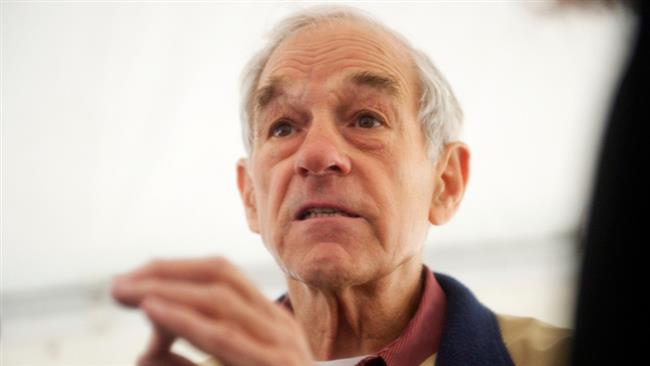
RNA - Paul said this was not the first time that Washington uses “a so-called excuse” to launch a military action on a sovereign nation.
“I don't think the evidence is there, at least it hasn’t been presented, and they need a so-called excuse, they worked real hard, our government and their coalition,” he told the Russian broadcaster RT.
US President Donald Trump ordered a military attack on a Syrian airbase in Homs province in western Syria just a day after he accused Assad for the chemical attack, which killed at least 70 people in the town of Khan Shaykhun in Idlib province.
On Friday morning, the military fired 59 Tomahawk missiles from the USS Ross and USS Porter, Navy destroyers in the eastern Mediterranean Sea, against several targets on al-Shayrat air base.
Trump said the operation was in response to the chemical attack in Idlib. Damascus rejected the allegation, insisting it "has never used them [chemical weapons], anytime, anywhere, and will not do so in the future."
“If any of this was true, I don’t know why they couldn’t wait and take a look at it,” Paul said. “In 2013, there were similar stories that didn’t go anywhere.”
He was referring to a chemical attack in Ghouta agricultural belt around the capital Damascus on August 21, 2013.
“From my point of view, there was no need to rush. There was no threat to national security. They have to give a reason to do these things,” Paul added.
Paul said that he cannot understand the reason behind Trump’s “speedy reaction.”
He said the attack clearly does not lead to peace and instead it helps Daesh and al-Qaeda militants in Syria.
“The peace talks have ended now. They’re terrified that peace was going to break out! al-Qaeda was on the run, peace talks were happening, and all of a sudden, they had to change, and this changes things dramatically! I don’t expect peace talks anytime soon or in the distant future.”
'US should not be the policemen of the world'
Paul also spoke about US interference in the world issues, saying: “I don’t believe that our people or the American government should be the policemen of the world.”
In early 2003, the US, backed by the United Kingdom invaded Iraq under the pretext that the regime of former Iraqi dictator Saddam Hussein had weapons of mass destruction (WMD).
Britain's Iraq war inquiry, known as the Chilcot Inquiry, however, concluded that the policy on the Iraq invasion was based on "flawed" intelligence about the country's supposed WMD.
The invasion, lasted for eight years, plunged Iraq into chaos, resulting in years of deadly violence and the rise of terrorist groups like al-Qaeda, which was a precursor of Daesh.
847/940